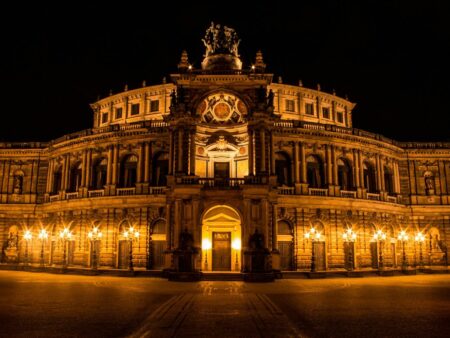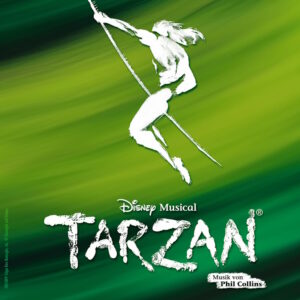Henry Purcell
King Arthur or The British Worthy
Libretto von John Dryden
Prologue to the Opera,
Spoken by Mr. Betterton.
Sure there’s a Dearth of Wit in this dull Town,
When silly Plays so savourly go down:
As when Clipp’d Money passes, ‚tis a sign
A Nation is not over-stock’d with Coin.
Happy is he, who, in his own Defence,
Can Write just level to your humble Sence:
Who higher than your Pitch can never go;
And doubtless, he must creep, who Writes below.
So have I seen in Hall of Knight, or Lord,
A weak Arm, throw on a long Shovel-Board,
He barely lays his Piece, bar Rubs and Knocks,
Secur’d by weakness not to reach the Box.
A Feeble Poet will his Bus’ness do;
Who straining all he can, comes up to you:
For if you like your Selves, you like him too.
An Ape his own Dear Image will embrace;
An ugly Beau adores a Hatchet Face:
So some of you, on pure instinct of Nature,
Are led, by Kind, t’admire your fellow Creature.
In fear of which, our House has sent this Day,
T‘ insure our New-Built Vessel, call’d a Play.
No sooner Nam’d than one crys out, These Stagers
Come in good time, to make more Work for Wagers.
The Town divides, if it will take, or no,
The Courtiers Bet, the Cits, the Merchants too;
A sign they have but little else to do.
Betts, at the first, were Fool-Traps; where the Wise
Like Spiders, lay in Ambush for the Flies:
But now they’re grown a common Trade for all,
And Actions, by the News-Book, Rise and Fall.
Wits, Cheats, and Fops, are free of Wager-Hall.
One Policy, as far as Lyons carries;
Another, nearer home, sets up for Paris.
Our Betts, at last, wou’d ev’n to Rome extend,
But that the Pope has prov’d our Trusty Friend.
Indeed, it were a Bargain, worth our Money,
Cou’d we insure another Ottobuoni.
Among the rest, there are a sharping Sett,
That Pray for us, and yet against us Bett:
Sure Heav’n it self, is at a loss to know,
If these wou’d have their Pray’rs be heard, or no:
For in great Stakes, we piously suppose,
Men Pray but very faintly they may lose.
Leave off these Wagers; for in Conscience Speaking,
The City needs not your new Tricks for breaking:
And if you Gallants lose, to all appearing
You’ll want an Equipage for Volunteering:
While thus, no Spark of Honour left within ye,
When you shou’d draw the Sword, you draw the Guinea.
Act I.
Scene I.
[After ten battles King Arthur has regained all his kingdom from the Saxons – headed by his rival in war and love, Oswald – except the land of Kent. He sets off for the decisive battle after bidding farewell to his betrothed, Emmeline, the blind daughter of Conon, Duke of Cornwall.]Scene 2.
The Scene represents a place of Heathen Worship; The three Saxon Gods, Woden, Thor, and Freya placed on Pedestals. An Altar.
[Oswald, Osmond and Grimbald, who has collected the victims for the sacrifice that is to ensure victory, prepare for the rites.]OSMOND. Call in the Victims to propitiate Hell.
GRIMBALD. That’s my kind Master, I shall break fast on ‚em.
Grimbald goes to the Door, and Re-enters with six Saxons in White, with Swords in their hands. They range themselves three and three in Opposition to each other.
The rest of the Stage is fill’d with Priests and Singers.
Woden, first to thee,
A Milk-white Steed in Battel won,
We have Sacrific’d.
CHORUS.
We have Sacrific’d.
VERS.
Let our next oblation be,
To Thor, thy thundring Son,
Of such another.
CHORUS.
We have Sacrific’d.
VERS.
A Third; (of Friezland breed was he,)
To Woden’s Wife, and to Thor’s Mother:
And now we have atton’d all three
We have Sacrific’d.
CHORUS.
We have Sacrific’d.
2 VOC.
The White Horse Neigh’d aloud.
To Woden thanks we render.
To Woden, we have vow’d.
CHORUS.
To Woden, our Defender.
The four last Lines in Chorus.
VERS.
The Lot is cast, and Tanfan pleas’d:
CHORUS.
Of Mortal Cares you shall be eas’d,
Brave Souls to be renown’d in Story.
Honour prizing,
Death despising,
Fame acquiring
By Expiring,
Die, and reap the fruit of Glory.
Brave Souls to be renown’d in Story.
VERS. 2.
I call ye all,
To Woden’s Hall;
Your Temples round
With Ivy bound,
In Goblets crown’d,
And plenteous Bowls of burnish’d Gold;
Where you shall Laugh,
And dance and quaff,
The Juice, that makes the Britons bold.
The six Saxons are led off by the Priests, in Order to be Sacrific’d.
OSWALD.
Ambitious Fools we are,
And yet ambition is a Godlike Fault:
Or rather, ‚tis no Fault in Souls born great,
Who dare extend their Glory by their Deeds.
Now Britany prepare to change thy State,
And from this Day begin thy Saxon date.
Exeunt Omnes.
[A Battel supposed to be given behind the Scenes, with Drums, Trumpets, and Military Shouts and Excursions: After which, the Britons, expressing their Joy for the Victory, sing this Song of Triumph.]Come if you dare, our Trumpets sound;
Come if you dare, the Foes rebound:
We come, we come, we come, we come,
Says the double, double, double Beat of the Thundring Drum.
Now they charge on amain,
Now they rally again:
The Gods from above the mad Labour behold,
And pity Mankind that will perish for Gold.
The fainting Saxons quit their Ground,
Their Trumpets Languish in the Sound;
They fly, they fly, they fly, they fly;
Victoria, Victoria, the Bold Britons cry.
Now the Victory’s won,
To the Plunder we run:
We return to our Lasses like Fortunate Traders,
Triumphant with Spoils of the Vanquisht Invaders.
Act II.
MERLIN.
I will employ thee, for thy future Good:
Thou know’st, in spite of Valiant Oswald’s Arms,
Or Osmond’s Powerful Spells, the Field is ours. —
PHILIDEL.
Oh, Master! hasten
Thy Dread Commands, for Grimbald is at Hand;
Osmond’s fierce Fiend, I snuff his Earthly Scent:
The Conquering Britons, he misleads to Rivers,
Or dreadful Downfals of unheeded Rocks;
Where many fall, that ne’er shall rise again.
MERLIN.
Be that thy care, to stand by falls of Brooks,
And trembling Bogs, that bear a Green-Sword show.
Warn off the bold Pursuers from the Chace:
No more, they come, and we divide the Task.
But lest fierce Grimbald’s pond’rous Bulk oppress
Thy tender flitting Air, I’ll leave my Band
Of Spirits with United strength to Aid thee,
And force with force repel.
Exit Merlin on his Chariot. Merlin’s Spirits stay with Philidel.
Enter Grimbald in the Habit of a Shepherd, follow’d by King Arthur, Conon, Aurelius, Albanact and Souldiers, who wander at a distance in the Scenes.
GRIMBALD.
Here, this way, Britons, follow Oswald’s flight;
This Evening as I whistl’d out my Dog,
To drive my straggling Flock, and pitch’d my Fold,
I saw him dropping Sweat, o’er-labour’d, stiff,
Make faintly as he could, to yonder Dell.
Tread in my Steps; long Neighbourhood by Day
Has made these Fields familiar in the Night.
ARTHUR.
I thank thee, Shepherd;
Expect Reward, lead on, we follow thee.
PHILIDEL sings.
Hither this way, this way bend,
Trust not that Malicious Fiend:
Those are false deluding Lights,
Wafted far and near by Sprights.
Trust ‚em not, for they’ll deceive ye;
And in Bogs and Marshes leave ye.
CHORUS OF PHILIDEL’S SPIRITS.
Hither this way, this way bend.
CHORUS OF GRIMBALD’S SPIRITS.
This way, this way bend.
PHILIDEL sings.
If you step, no Danger thinking,
Down you fall, a Furlong sinking:
‚Tis a Fiend who has annoy’d ye;
Name but Heav’n, and he’ll avoid ye.
CHORUS OF PHILIDEL’S SPIRITS.
Hither this way, this way bend.
CHORUS OF GRIMBALD’S SPIRITS.
This way, this way bend.
PHILIDEL’S SPIRITS.
Trust not that Malicious Fiend.
GRIMBALD’S SPIRITS.
Trust me, I am no Malicious Fiend.
PHILIDEL’S SPIRITS.
Hither this way, etc.
CONON.
Some wicked Phantom, Foe to Human kind,
Misguides our Steps.
ALBANACT.
I’ll follow him no farther.
GRIMBALD speaks.
By Hell, he sings ‚em back, in my despight,
I had a voice in Heav’n, e’re Sulph’rous Steams
Had damp’d it to a hoarseness; but I’ll try.
HE sings.
Let not a Moon-born Elf mislead ye,
From your Prey, and from your Glory.
Too far, Alas, he has betray’d ye:
Follow the Flames, that wave before ye:
Sometimes Seven, and sometimes one;
Hurry, hurry, hurry, hurry on.
2.
See, see, the Footsteps plain appearing,
That way Oswald chose for flying:
Firm is the Turff, and fit for bearing,
Where yonder Pearly Dews are lying.
Far he cannot hence be gone;
Hurry, hurry, hurry, hurry on.
AURELIUS.
‚Tis true, he says; the Footsteps yet are fresh
Upon the Sod, no falling Dew-drops have
Disturb’d the Print.
All are going to follow Grimbald.
PHILIDEL sings.
Hither this way.
CHORUS OF PHILIDEL’S SPIRITS.
Hither this way, this way bend.
CHORUS OF GRIMBALD’S SPIRITS.
This way, this way bend.
PHILIDEL’S SPIRITS.
Trust not that Malicious Fiend.
GRIMBALD’S SPIRITS.
Trust me, I am no Malicious Fiend.
PHILIDEL’S SPIRITS.
Hither this way, etc.
They all incline to Philidel.
GRIMBALD speaks.
Curse on her Voice, I must my Prey forego;
Thou, Philidel, shall answer this below.
Grimbald sinks with a flash.
ARTHUR.
At last the Cheat is plain;
The Cloven-footed Fiend is Vanish’d from us;
Good Angels be our Guides, and bring us back.
PHILIDEL SINGING.
Come follow, follow, follow me.
CHORUS
Come follow, etc.
And me. And me. And me. And me.
VERSE. 2 VOC.
And Green-Sword all your way shall be.
CHORUS.
Come follow, etc.
VERSE.
No Goblin or Elf shall dare to offend ye.
VERS. 3 VOC.
We Brethren of Air,
You Hero’s will bear,
To the Kind and the Fair that attend ye.
CHORUS.
We Brethren, etc.
Philidel and the Spirits go off Singing, with King Arthur and the rest in the middle of them. Enter Emmeline led by Matilda. Pavilion Scene.
[Emmeline and Matilda discuss King Arthur.]EMMELINE.
No more; I have learn’d enough for once.
MATILDA.
Here are a Crew of Kentish Lads and Lasses,
Wou’d entertain ye, till your Lord’s return,
With Songs and Dances, to divert your Cares.
EMMELINE.
O bring them in,
For tho‘ I cannot see the Songs, I love ‚em;
And Love, they tell me, is a Dance of Hearts.
Enter Shepherds and Shepherdesses.
1 SHEPHERD sings.
How blest are Shepherds, how happy their Lasses,
While Drums and trumpets are sounding Alarms!
Over our Lowly Sheds all the Storm passes;
And when we die, ‚tis in each others Arms.
All the Day on our Heards and Flocks employing;
All the Night on our Flutes, and in enjoying.
CHORUS.
All the Day, etc.
2.
Bright Nymphs of Britain, with Graces attended,
Let not your Days without Pleasure expire;
Honour ’s but empty, and when Youth is ended,
All Men will praise you, but none will desire.
Let not Youth fly away without Contenting;
Age will come time enough, for your Repenting.
CHORUS.
Let not Youth, etc.
Here the Men offer their Flutes to the Women, which they refuse.
2 SHEPHERDESSES
Shepherd, Shepherd, leave Decoying,
Pipes are sweet, a Summers Day;
But a little after Toying,
Women have the shot to pay.
2.
Here are Marriage-Vows for signing,
Set their Marks that cannot write:
After that, without Repining,
Play and Welcome, Day and Night.
Here the Women give the Men Contracts, which they accept.
CHORUS OF ALL.
Come, Shepherds, lead up a lively Measure;
The Cares of Wedlock, are Cares of Pleasure:
But whether Marriage bring Joy, or Sorrow,
Make sure of this Day, and hang to morrow.
The Dance after the Song, and Exeunt Shepherds and Shepherdesses.
[Emmeline and Matilda are captured by Oswald, who refuses the offers made by Arthur during a parley. The Britons prepare to rescue Emmeline from the Saxons.]Act III.
Scene 1.
[Though the Britons are terrified by the magic horrors that surround the Saxon fort, Arthur is ready to go on alone. Merlin, however, advises him to wait till the spells are broken, but takes him to restore the sight of the captive Emmeline.]Scene 2.
Scene, a Deep Wood.
[Philidel, trying to find Emmeline, is caught by Grimbald, but escapes and casts a strong spell over the evil Spirit.]Enter to him Merlin, with a Vial in his Hand; and Arthur.
MERLIN.
Well hast thou wrought thy Safety with thy Wit,
My Philidel; go Meritorious on.
Me, other Work requires, to view the Wood,
And learn to make the dire inchantments void.
Mean time attend King Arthur in my Room;
Shew him his Love, and with these Soveraign Drops
Restore her sight.
Exit Merlin giving a Vial to Philidel.
PHILIDEL.
We must work, we must hast;
Noon-Tyde Hour is almost past:
Sprights, that glimmer in the Sun,
Into Shades already run.
Osmond will be here anon.
Enter Emmeline and Matilda, at the far end of the Wood.
ARTHUR.
O yonder, yonder she’s already found:
My Soul directs my sight, and flies before it.
Now, Gentle Spirit, use thy utmost Art;
Unseal her Eyes; and this way lead her Steps.
Arthur withdraws behind the Scene.
Emmeline and Matilda come forward to the Front.
Philidel approaches Emmeline, sprinkling some of the Water over her Eyes, out of the Vial.
PHILIDEL.
Thus, Thus I infuse
These Soveraign Dews.
Fly back, ye Films, that Cloud her sight,
And you, ye Chrystal Humours bright,
Your Noxious Vapours purg’d away,
Recover, and admit the Day,
Now cast your Eyes abroad, and see
All but me.
ARTHUR.
Ha! Does the Inchanter practice Hell upon you?
Is he my Rival too?
EMMELINE.
Yes, but I hate him;
For when he spoke, through my shut Eyes I saw him;
His Voice look’d ugly, and breath’d brimstone on me:
And then I first was glad that I was blind,
Not to behold Damnation.
PHILIDEL.
This time is left me to Congratulate
Your new-born Eyes; and tell you what you gain
By sight restor’d, and viewing him you love.
Appear, you Airy Forms!
Airy Spirits appear in the Shapes of Men and Women.
MAN sings.
O Sight, the Mother of Desires,
What Charming Objects dost thou yield!
‚Tis sweet, when tedious Night expires,
To see the Rosie Morning gild
The Mountain Tops, and Paint the Field!
But, when Clorinda comes in sight,
She makes the Summers Day more bright;
And when she goes away, ‚tis Night.
CHORUS.
When Fair Clorinda comes in sight, etc.
WOMAN sings.
‚Tis sweet the Blushing Morn to view;
And Plains adorn’d with Pearly Dew:
But such cheap Delights to see,
Heaven and Nature,
Give each Creature;
They have Eyes, as well as we.
This is the Joy, all Joys above
To see, to see,
That only she,
That only she we love!
CHORUS.
This is the Joy, all Joys above, etc.
MAN sings.
And, if we may discover,
What Charms both Nymph and Lover,
‚Tis, when the Fair at Mercy lies,
With Kind and Amorous Anguish,
To Sigh, to Look, to Languish,
On each others Eyes!
CHORUS OF ALL MEN AND WOMEN.
And if we may discover, etc.
PHILIDEL.
Break off your musick; for our Foes are near.
Spirits vanish.
[Emmeline and Matilda are left alone by Arthur and Merlin. Osmond, now seen by Emmeline for the first time, makes ardent love to her, and boasts how he has cast Oswald into prison.]MATILDA.
He strikes a Horror through my Blood.
EMMELINE.
I Freeze, as if his impious Art had fix’d
My Feet to Earth.
OSMOND.
But Love shall thaw ye.
I’ll show his force in Countries cak’d with Ice,
Where the pale Pole-Star in the North of Heav’n
Sits high, and on the frory Winter broods;
Yet there Love Reigns: For proof, this Magick Wand
Shall change the Mildness of sweet Britains Clime
To Yzeland and the farthest Thule’s Frost;
Where the Proud God, disdaining Winters Bounds,
O’er-leaps the Fences of Eternal Snow,
And with his Warmth, supplies the distant Sun.
Osmond strikes the Ground with his Wand: The Scene changes to a Prospect of Winter in Frozen Countries.
Cupid Descends.
CUPID sings.
What ho, thou Genius of the Clime, what ho!
Ly’st thou asleep beneath those Hills of Snow?
Stretch out thy Lazy Limbs; awake, awake,
And Winter from thy Furry Mantle shake.
Genius Arises.
GENIUS.
What Power art thou, who from below,
Hast made me Rise, unwillingly and slow,
From Beds of Everlasting Snow!
See’st thou not how stiff, and wondrous old,
Far unfit to bear the bitter Cold,
I can scarcely move, or draw my Breath;
Let me, let me, Freeze again to Death.
CUPID.
Thou Doting Fool forbear, forbear;
What, Dost thou Dream of Freezing here?
At Loves appearing, all the Skie clearing.
The Stormy Winds their Fury spare:
Winter subduing and Spring renewing,
My Beams create a more Glorious Year,
Thou Doting Fool, forbear, forbear;
What, Dost thou Dream of Freezing here?
GENIUS.
Great Love, I know thee now;
Eldest of the Gods art Thou:
Heav’n and Earth, by Thee were made.
Humane Nature,
Is thy Creature,
Every Where Thou art obey’d.
CUPID.
No part of my Dominion shall be waste,
To spread my Sway, and Sing my Praise,
Ev’n here I will a People raise,
Of kind embracing Lovers, and embraced.
Cupid waves his Wand upon which the Scene opens, and discovers a Prospect of Ice and Snow to the end of the Stage.
Singers and Dancers, Men and Women, appear.
See, see, we assemble,
MAN.
Thy Revels to hold:
Though quiv’ring with Cold,
We Chatter and Tremble.
CUPID.
‚Tis I, ‚tis I, ‚tis I, that have warm’d ye;
In spight of Cold Weather,
I’ve brought ye together:
‚Tis I, ‚tis I, ‚tis I, that have arm’d ye.
CHORUS.
‚Tis Love, ‚tis Love, ‚tis Love that has warm’d us.
In spight of Cold Weather,
He brought us together:
‚Tis Love, ‚tis Love, ‚tis Love that has arm’d us.
CUPID.
Sound a Parley, ye Fair, and surrender;
Set your selves, and your Lovers at ease;
He’s a Grateful Offender
Who Pleasure dare seize:
But the Whining pretender
Is sure to displease.
Since the Fruit of Desire is possessing
‚Tis Unmanly to Sigh and Complain;
When we Kneel for Redressing.
We move your Disdain:
Love was made for a Blessing,
And not for a Pain.
A Dance; after which the Singers and Dancers depart.
[Emmeline is saved from the advances of Osmond by a cry from the ensnared Grimbald, which compels the magician to go to the aid of his evil spirit.]Act IV.
Scene 1.
[Osmond, learning that his spells have been broken by Merlin, plans to trap Arthur with visions of beauty.]Scene 2.
Scene of the Wood continues.
[Arthur, having been warned by Merlin that all he sees is illusion, is left alone in the wood, watched over by Philidel, who can, with Merlin’s wand, expose the evil spirits.]ARTHUR walking.
No Danger yet, I see no walls of Fire,
No City of the Fiends, with Forms obscene,
To grin from far, on Flaming Battlements.
This is indeed the Grove I shou’d destroy;
But where’s the Horrour! Sure the Prophet err’d.
Soft Musick.
Hark! Musick, and the warbling Notes of Birds;
Hell entertains me, like some welcome Guest.
More Wonders yet; yet all delightful too,
A Silver Current to forbid my passage,
And yet to invite me on, stands a Golden Bridge:
Perhaps a Trap, for my Unwary Feet
To sink, and Whelm me underneath the Waves;
With Fire or Water, let him wage his War,
Or all the Elements at once; I’ll on.
As he is going to the Bridge, two Syrens arise from the Water; They shew themselves to the Waste, and Sing.
1 SYREN.
O pass not on, but stay,
And waste the Joyous Day
With us in gentle Play:
Unbend to Love, unbend thee:
O lay thy Sword aside,
And other Arms provide;
For other Wars attend thee,
And sweeter to be try’d.
CHORUS.
For other Wars, etc.
BOTH sing.
Two Daughters of this Aged Stream are we;
And both our Sea-green Locks have comb’d for thee;
Come Bath with us an Hour or two,
Come Naked in, for we are so;
What Danger from a Naked Foe?
Come Bath with us, come Bath, and share,
What Pleasures in the Floods appear;
We’ll beat the Waters till they bound,
And Circle round, around, around,
And Circle round, around.
ARTHUR.
A Lazie Pleasure trickles through my Veins;
Here could I stay, and well be Cozen’d here.
But Honour calls; Is Honour in such haste?
Can he not Bait at such a pleasing Inn?
No; for the more I look, the more I long;
Farewel, ye Fair Illusions, I must leave ye.
While I have Power to say, that I must leave ye.
Farewel, with half my Soul I stagger off;
How dear this flying Victory has cost,
When, if I stay to struggle, I am lost.
As he is going forward, Nymphs and Sylvans come out from behind the Trees, Base and two Trebles sing the following Song to a Minuet.
Dance with Song, all with Branches in their Hands.
I.
Song.
How happy the Lover,
How easie his Chain,
How pleasing his Pain?
How sweet to discover!
He sighs not in vain.
For Love every Creature
Is form’d by his Nature;
No Joys are above
The Pleasures of Love.
The Dance continues with the same Measure play’d alone.
II.
In vain are our Graces,
In vain are your Eyes,
If Love you despise;
When Age furrows Faces,
‚Tis time to be wise.
Then use the short Blessing.
That Flies in Possessing:
No Joys are above
The Pleasures of Love.
ARTHUR.
And what are these Fantastick Fairy Joys,
To Love like mine? False Joys, false Welcomes all,
Begone, ye Sylvan Trippers of the Green;
Fly after Night, and overtake the Moon.
Here the Dancers, Singers, and Syrens vanish.
[Arthur draws his sword and strikes at the finest tree in the wood to destroy the spells, but from its trunk appears Emmeline, her arm bleeding from his blow. She has almost persuaded him to put down his sword and take her by the hand, when Philidel runs on, touches her with the wand and discloses her to be Grimbald disguised. Arthur then strikes the tree, the spells are broken, and the pass is free to the Saxon castle. Philidel binds Grimbald and takes him a prisoner into the light of day.]Act V.
Scene 1.
[Osmond, finding his spells broken and his spirit captured, determines to release Oswald from the prison in the last hope that together they may defeat Arthur.]Scene 2.
[Marching to the Saxon Castle, the Britons are met by Oswald, who proposes to decide the war by single combat with Arthur. Assisted by their enchanters the two kings fight, Arthur finally disarming Oswald.]ARTHUR.
Confess thy self o’ercome, and ask thy Life.
OSWALD.
‚Tis not worth asking, when ‚tis in thy Power.
ARTHUR.
Then take it as my Gift.
OSWALD.
A wretched Gift.
With loss of Empire, Liberty, and Love.
A Consort of Trumpets within, proclaiming Arthur’s Victory. While they Sound, Arthur and Oswald seem to Confer.
[Arthur orders Oswald to take his men back to Saxony. Emmeline is restored to her lover. Osmond is cast into prison by Merlin.]MERLIN TO ARTHUR.
For this Days Palm, and for thy former Acts,
Thy Britain freed, and Foreign Force expell’d,
Thou, Arthur, hast acquir’d a future Fame,
And of three Christian Worthies, art the first:
And now at once, to treat thy Sight and Soul,
Behold what Rouling Ages shall produce:
The Wealth, the Loves, the Glories of our Isle,
Which yet like Golden-Oar, unripe in Beds,
Expect the Warm Indulgency of Heav’n
To call ‚em forth to Light –
MERLIN TO OSWALD.
Nor thou, brave Saxon Prince disdain our Triumphs;
Britains and Saxons shall be once one People;
One Common Tongue, one Common Faith shall bind
Our Jarring Bands, in a perpetual Peace.
Merlin waves his Wand; the Scene changes, and discovers the British Ocean in a Storm. Aeolus in a Cloud above: Four Winds hanging, etc.
AEOLUS singing.
Ye Blust’ring Brethern of the Skies,
Whose Breath has ruffl’d all the Wat’ry Plain,
Retire, and let Britannia Rise
In Triumph o’er the Main.
Serene and Calm, and void of fear,
The Queen of Islands must appear:
Serene and Calm, as when the Spring
The New Created World began,
And Birds on Boughs did softly sing,
Their Peaceful Homage paid to Man,
While Eurus did his Blasts forbear,
In favour of the Tender Year.
Retreat, Rude Winds, retreat
To Hollow Rocks, your Stormy Seat;
There swell your Lungs, and vainly, vainly threat.
Aeolus ascends, and the four Winds fly off. The Scene opens, and discovers a calm Sea, to the end of the House. An Island arises, to a soft Tune; Britannia seated in the Island, with Fishermen at her Feet, etc. The Tune changes; the Fishermen come ashore, and dance a while; after which, Pan and a Nereide come on the Stage, and sing.
PAN AND NEREIDE sing.
Round thy Coast, Fair Nymph of Britain,
For thy Guard our Waters flow:
Proteus all his Herd admitting,
On thy Greens to Graze below.
Foreign Lands thy Fishes Tasting;
Learn from thee Luxurious Fasting.
Song of three Parts.
For Folded Flocks, on Fruitful Plains,
The Shepherds and the Farmers Gains,
Fair Britain all the World outvies:
And Pan, as in Arcadia Reigns,
Where Pleasure mixt with Profit lies.
2.
Though Jason’s Fleece was Fam’d of Old,
The British Wool is growing Gold;
No Mines can more of Wealth supply:
It keeps the Peasant from the Cold,
And takes for King the Tyrian Dye.
Enter Comus with three Peasants, who sing the following Song in Parts.]
COMUS.
Your Hay it is Mow’d and your Corn is Reap’d;
Your Barns will be full, and your Hovels heap’d:
Come, my Boys, come;
Come, my Boys, come;
And merrily Roar our Harvest Home;
Harvest Home,
Harvest Home;
And merrily Roar out Harvest Home.
CHORUS.
Come, my Boys, come, etc.
1 MAN.
We ha‘ cheated the Parson, we’ll cheat him agen;
For why shou’d a Blockhead ha‘ One in Ten?
One in Ten,
One in Ten;
For why shou’d a Blockhead ha‘ One in Ten?
CHORUS.
One in Ten,
One in Ten;
For why shou’d a Blockhead ha‘ One in Ten?
2 MAN.
For Prating so long like a Book-learn’d Sot,
Till Pudding and Dumplin burn to Pot;
Burn to Pot,
Burn to Pot;
Till Pudding and Dumpling burn to Pot.
CHORUS.
Burn to Pot, etc.
3 MAN.
We’ll toss off our Ale will we canno‘ stand,
And Hoigh for the Honour of Old England:
Old England,
Old England;
And Hoigh for the Honour of Old England.
CHORUS.
Old England, etc.
The Dance vary’d into a round Country-Dance.
Enter Venus.
VENUS.
Fairest Isle, all Isles Excelling,
Seat of Pleasures, and of Loves;
Venus, here, will choose her Dwelling,
And forsake her Cyprian Groves.
2.
Cupid from his Fav’rite Nation,
Care and Envy will Remove;
Jealousie, that poysons Passion,
And Despair that dies for Love.
3.
Gentle Murmurs, sweet Complaining,
Sighs that blow the Fire of Love;
Soft Repulses, kind Disdaining,
Shall be all the Pains you prove.
4.
Every Swain shall pay his Duty,
Grateful every Nymph shall prove;
And as these Excel in Beauty,
Those shall be Renown’d for Love.
Song by Mr. Howe.
SHE.
You say, ‚Tis Love Creates the Pain,
Of which so sadly you complain;
And yet wou’d fain engage my Heart
In that uneasie cruel part:
But how, Alas! think you, that I,
Can bear the Wound of which you die?
2.
HE.
‚Tis not my Passion makes my Care,
But your Indifference gives Despair:
The Lusty Sun begets no Spring,
Till Gentle Show’rs Assistance bring:
So Love that Scorches, and Destroys,
Till Kindness Aids, can cause no Joys.
3.
SHE.
Love has a Thousand Ways to please,
But more to rob us of our Ease:
For Wakeful Nights and Careful Days,
Some Hours of Pleasure he repays;
But absence soon, or Jealous Fears,
O’erflow the joys with Floods of Tears.
4.
HE.
By vain and senseless Forms betray’d,
Harmless Love ’s th‘ Offender made;
While we no other Pains endure,
Than those, that we our selves procure;
But one soft Moment makes Amends
For all the Torment that attends.
5.
CHORUS OF BOTH.
Let us love, let us love, and to Happiness haste;
Age and Wisdom come too fast:
Youth for Loving was design’d.
HE alone.
I’ll be constand, you be kind.
SHE alone.
You be constant, I’ll be kind.
BOTH.
Heav’n can give no greater Blessing,
Than faithful Love, and kind Possessing.
After the Dialogue, A Warlike Consort: The Scene opens above, and discovers the Order of the Garter.
Enter Honour, Attended by Hero’s.
MERLIN.
These who hast enter’d, are our Valiant Britains
Who shall by Sea and Land Repel our Foes.
Now look above, and in Heav’ns High Abyss,
Behold what Fame attends those future Hero’s.
Honour, who leads ‚em to that Steepy Height,
In her Immortal Song, shall tell the rest.
Honour sings.
1.
HONOUR.
St. George, the Patron of our Isle,
A Soldier, and a Saint,
On that Auspicious Order smile,
Which Love and Arms will plant.
2.
Our Natives not alone appear
To court this Martial Prize;
But Foreign Kings Adopted here,
Their Crowns at home despise.
3.
Our Soveraign High, in Aweful State,
His Honours shall bestow;
And see his Scepter’d Subjects wait
On his Commands below.
A full Chorus of the whole Song: After which the Grand Dance.
ARTHUR TO MERLIN.
Wisely you have, what’re will please, revealed,
What wou’d displease, as wisely have concealed:
Triumphs of War and Peace, at full ye show,
But swiftly turn the Pages of our Who.
Rest we contented with our present State;
‚Tis Anxious to Enquirer of future Fate;
That Race of Hero’s is enough alone
For all unseen Disasters to atone.
Let us make haste betimes to Reap our share,
And not Resign them all the Praise of War.
But set th‘ Example; and their Souls Inflame,
To Copy out their Great Forefathers Fame.








